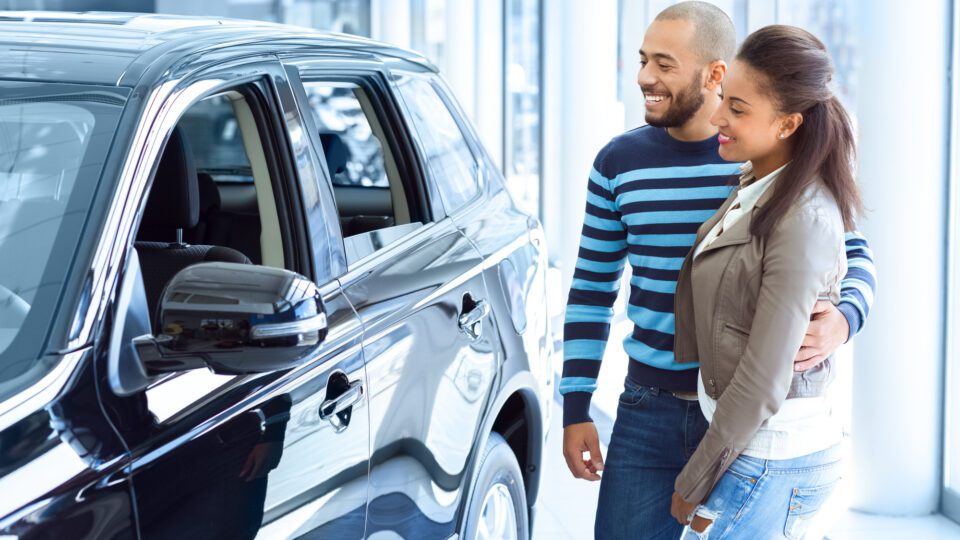
Is Car Insurance Cheaper for an SUV or Sedan?
Buying a new or pre-owned vehicle is an exciting endeavour. It is a big decision with lots of factors to consider. For most people, the cost of car insurance is an afterthought. So, we wanted to take some time to proactively shed some light on the connection between car insurance costs and types of cars. One commonly asked question – is it cheaper to insure a sedan or an SUV?
You might be surprised that certain SUVs are cheaper to insure than other vehicles, including sedans. This observation often depends on what size SUV you are looking to buy. Not surprisingly, certain makes, models and brands are cheaper than others. Because of this, in some cases, the sedan will be cheaper to insure.
What type of SUV is cheaper to insure?
According to ValuePenguin, which analyzes many consumer products, including car insurance in the USA, the cheapest SUV to insure is the Honda CR-V. Their study found that insurance rates for small SUVs were 17 percent less than standard-sized SUVs. In their research, the top five cheapest SUVs to insure include the following:
- Honda CR-V
- Toyota RAV4
- Chevrolet Equinox
- Ford Escape
- Chevrolet Tahoe
One of the main reasons smaller SUVs have lower premiums is that collision and comprehensive claims are less expensive. This type of coverage pays for repairs or replacing your vehicle, and costs are usually higher for more expensive SUVs. Typically, larger cars, including trucks and SUVs, are more costly to insure. However, small crossover SUVs have some of the cheapest insurance rates compared to compact vehicles.
What determines car insurance rates?
Car insurance premiums are based on various factors, some of which include your location, the type of vehicle you’re driving, your driving record, and your age. Insurers assess the risk of insuring you and your car, and the higher the risk, the higher the premium.
Typically, vehicles with high repair costs, poor safety ratings, and higher claim rates receive higher premiums. A poor safety rating means the driver and passengers are more likely to sustain severe injuries due to an accident, which results in more expensive claims.
It is pretty evident that SUVs are popular with drivers, and for many good reasons. Certain SUVs carry safety features that reduce the risk of accidents and total losses, which means an insurer is more confident insuring that particular SUV. On the flip side, SUV popularity makes some models more attractive to car thieves, contributing to higher insurance rates.
If you’re looking to lower your car insurance rates, and really who isn’t, here are some tips to consider.
When buying an SUV or sedan or any car, these factors will impact your car insurance rates.
- High-end vehicles. Typically, cars with the highest comprehensive losses include high-end brands such as BMW, Bentley, and Mercedes-Benz. The same goes for sports cars that are usually more expensive to insure because of their high-performance engines and other features geared toward speeding.
- The Cost to Repair the Vehicle. Typical car repair costs are a significant driving force in insurance rates. The higher the sticker price (and the higher the market value or replacement value), the more the premium will be – regardless of whether it is an SUV or sedan. If you have foreign parts or components that require special body shops, you will also spend more.
- Safety Record of the Vehicle. Some SUVs have impeccable safety records; therefore, the insurance company might offer a lower premium for that SUV over one with not-so-impressive safety statistics.
- Potential for Theft. Insurance rates are impacted by the likelihood someone will steal your vehicle. Each year, the Insurance Bureau of Canada produces a list of the top 10 stolen vehicles in Canada and specific regions.
- Look at your coverage. If you’re insuring an older vehicle and your annual premium is more than 10 percent of your vehicle’s value, you might want to consider dropping the collision and comprehensive coverage. You don’t want to pay for more coverage than what the car is worth. However, make sure you’re still carrying the minimum amount of coverage needed, based on your needs and your state’s requirements.
Whether you buy an SUV you always wanted, a sedan or any other car, it pays to do your research. Take some time to proactively investigate car insurance rates for the vehicle you want to buy. Please speak with one of our Bauld Insurance Advisors, who are experts in all things car insurance. Or visit our webpage for answers to car insurance frequently asked questions and to request a car insurance quote.